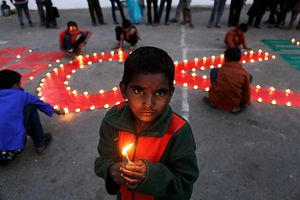In India, among the most disadvantaged groups are sex workers, especially female and transgender sex workers. The two groups have time and time again reported facing stigma and discrimination at home, at work, in seeking healthcare, and in public spaces.
Income insecurity is a significant source of vulnerability that pushes female and transgender sex workers into risky sexual behaviors, increasing their vulnerability to HIV.
In my work with female and transgender sex workers in south India, the two groups reported continuous sexual and physical threats and violence from religious, health, and legal authorities. People in positions of power, including their male clients, often subject them to rape.
Even though sex work is not strictly illegal in India, sex workers remain one of the most vulnerable and marginalized groups, and continue to face criminalization. They experience discrimination and several forms of human rights violations, which increase their risk of acquiring HIV and restrict their access to healthcare and other services.
International data and research from India clearly demonstrates that even government officials misuse and target female and transgender sex workers and put them at further risks associated with HIV. For example, research carried out in Andhra Pradesh demonstrated significant links between specific police-related behaviors and HIV vulnerability. Female sex workers, the research found, at times end up having unprotected sex to avoid imprisonment. Sex workers also reported police officers seizing their condoms.





























